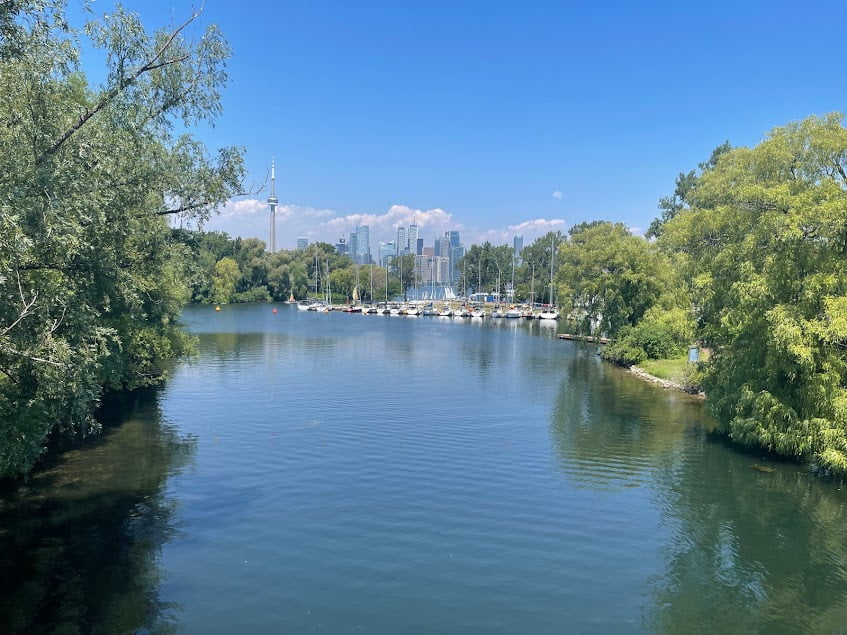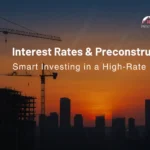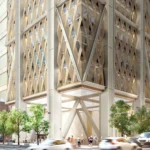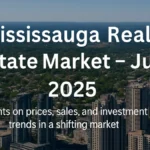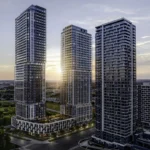The Toronto Real Estate Market: A Constantly Evolving Landscape
The Latest in Urban Living – The real estate market in Toronto is known for its dynamic nature, continually shifting in response to new trends, demographic changes, and the broader economy. As one of the fastest-growing urban centers in North America, Toronto attracts attention from investors, developers, and homebuyers alike. The city’s skyline is continually evolving, with new projects and residential developments reshaping its neighborhoods.
One of the most notable trends in the current market is the increasing popularity of preconstruction projects, which are particularly appealing to investors and first-time homebuyers looking to gain an edge in this competitive market. But the preconstruction market is just one part of a larger set of urban living trends that are shaping the future of Toronto’s residential spaces. Other key trends, such as mixed-use developments and sustainable design, are also gaining traction.
Understanding Preconstruction Projects in Toronto
Preconstruction refers to the phase of development where properties are sold before they are built, often based on architectural plans and renderings. For homebuyers and investors alike, buying a unit during this stage can present numerous advantages, including:
- Lower Initial Prices: Preconstruction properties are generally sold at a lower price compared to similar units that are already completed. This discount is offered as an incentive for buyers to invest early in a project.
- Equity Growth: As the development progresses, the value of the property typically increases. By the time the project is completed, units often appreciate in value, allowing early buyers to realize significant equity gains without having made a large upfront financial commitment.
- Customization Options: Many developers offer buyers the ability to customize their units during the preconstruction phase, allowing for personalized layouts, finishes, and design elements.
However, the preconstruction process can be complex, and it’s important to approach it with a well-informed strategy. Here’s a detailed breakdown of the key steps involved:
1. Research the Developer’s Background
Before purchasing a preconstruction unit, it is crucial to thoroughly research the developer behind the project. Not all developers operate at the same level, and ensuring that the developer has a solid track record of delivering successful projects can help minimize the risk of delays, quality issues, or even project cancellations.
- Experience: Look for developers who have completed multiple projects in the past, particularly in the same type of development you’re considering. Developers with years of experience tend to have established relationships with contractors, suppliers, and city planners, making them more likely to deliver on their promises.
- Reputation: Read reviews from previous buyers and consult online forums or social media groups to see what others are saying about the developer. Additionally, check if the developer has faced any legal issues or complaints in the past. A solid reputation is a good indicator that the developer will meet deadlines and maintain the quality of construction.
2. Review Floor Plans and Renderings
During the preconstruction phase, potential buyers are often presented with floor plans and renderings rather than a physical model of the unit. While these drawings offer a glimpse of what the final product will look like, they require careful scrutiny.
- Design and Layout: Make sure the layout aligns with your needs and lifestyle. Does it offer enough space for your furniture? Are the rooms proportionate to one another? Are the common areas spacious and well-thought-out?
- Materials and Finishes: Check the list of materials that will be used for the floors, walls, countertops, and appliances. High-quality materials can make a significant difference in the unit’s overall value and appeal.
- Amenities: Many new developments offer attractive amenities such as gyms, lounges, swimming pools, and rooftop terraces. While these can increase the overall cost of the unit, they also add to its resale value and appeal.
3. Understand the Purchase Agreement
The purchase agreement for a preconstruction property can be complex, filled with clauses that are specific to this type of transaction. It’s essential to thoroughly review the agreement, ideally with the help of a real estate lawyer, to avoid any misunderstandings or surprises.
Key elements to focus on include:
- Deposit Structure: Preconstruction properties usually require a series of deposits rather than a single down payment. The deposit schedule will outline when and how much you need to pay at each stage of the project. Understanding these financial obligations is critical, as missing a deposit can result in losing your unit.
- Closing Date and Delays: Preconstruction projects often take years to complete, and delays are common. Make sure the contract includes provisions for handling delays, and be prepared for the possibility that the final delivery date could be postponed.
- Conditions and Cancellations: In rare cases, developers may cancel projects due to unforeseen issues such as zoning disputes or financial problems. Ensure that the purchase agreement outlines the process for refunding deposits if the project is canceled or delayed indefinitely.
4. Secure a Mortgage Pre-Approval
Although the full payment for a preconstruction property may not be due for several years, securing a mortgage pre-approval early in the process is a smart move. This pre-approval will help you understand your budget and give you peace of mind that you will be able to finance the purchase when the time comes.
Lenders often have specific mortgage products designed for uction preconstruction properties, so it’s worth discussing your options with multiple financial institutions. Keep in mind that interest rates may change between the time you purchase the unit and the time you close on it, so it’s essential to stay in touch with your lender throughout the development process.
Other Emerging Urban Living Trends in Toronto
While preconstruction projects remain a dominant trend, several other urban living concepts are gaining momentum in Toronto’s real estate market. These trends are influencing how people live, work, and invest in the city.
1. Mixed-Use Developments
Mixed-use developments are becoming increasingly popular in Toronto as the city seeks to create more sustainable and vibrant communities. These developments combine residential, commercial, and retail spaces in a single project, offering residents the convenience of having amenities like grocery stores, cafes, and offices within walking distance.
- Community Building: Mixed-use projects foster a sense of community by encouraging interaction between residents, workers, and visitors. By integrating diverse uses into one location, they create neighborhoods that are lively and active throughout the day and night.
- Convenience: For residents, the convenience of living near shops, restaurants, and public transit makes daily life easier and more enjoyable. These developments also reduce the need for long commutes, promoting a more balanced work-life dynamic.
- Investment Potential: Mixed-use developments can be attractive to investors, as they tend to maintain higher occupancy rates and attract a diverse pool of tenants, including young professionals, families, and entrepreneurs.
2. Sustainable Design and Green Living
As cities around the world become more focused on reducing their environmental footprint, sustainable design has become an increasingly important factor in urban development. In Toronto, many new projects are being designed with eco-friendly features such as:
- Energy Efficiency: Developers are incorporating energy-efficient appliances, windows, and heating systems into their projects to reduce energy consumption and lower utility costs for residents.
- Green Roofs: Green roofs, which feature gardens or green spaces atop buildings, help reduce heat absorption, improve air quality, and provide residents with a peaceful, outdoor space to relax.
- Water Conservation: Features like low-flow fixtures, rainwater harvesting systems, and drought-tolerant landscaping are becoming more common, helping reduce water consumption and promote responsible use of resources.
Investing in a property that prioritizes sustainability not only benefits the environment but can also increase the property’s long-term value. Buyers and renters are increasingly seeking homes that offer energy savings and environmentally conscious features.
Final Thoughts: Navigating the Toronto Real Estate Market
The Toronto real estate market is rich with opportunities, but it requires careful research and strategic decision-making. Whether you’re interested in preconstruction projects, mixed-use developments, or sustainable design, the key to success is staying informed and understanding the trends that are driving the market.
For investors, preconstruction properties offer a unique chance to get in early on a development and watch their investment appreciate over time. But it’s essential to choose a reputable developer, review the purchase agreement thoroughly, and secure a mortgage pre-approval to ensure a smooth transaction.
For homebuyers, particularly first-time buyers, urban living trends like mixed-use developments offer an exciting opportunity to be part of Toronto’s growth. These projects provide convenience, community, and the chance to live in vibrant, sustainable neighborhoods.
In both cases, the importance of doing your homework cannot be overstated. Whether you’re comparing developers, reviewing floor plans, or exploring new trends, taking the time to make informed decisions will help you succeed in Toronto’s ever-changing real estate market.
Discover the latest trends in luxury Miami condos at Brickell Sold, and explore professional real estate photography services in Toronto with Click Media Pro. For comprehensive updates on Canadian real estate developments, visit Wedu and the Wedu Blog. Stay informed about the pre-construction market by visiting Preconstruction Info.

